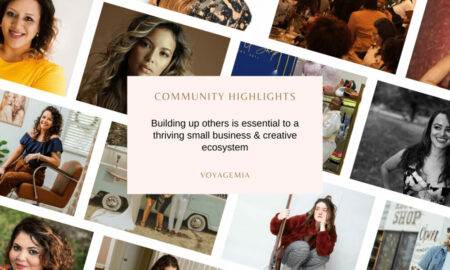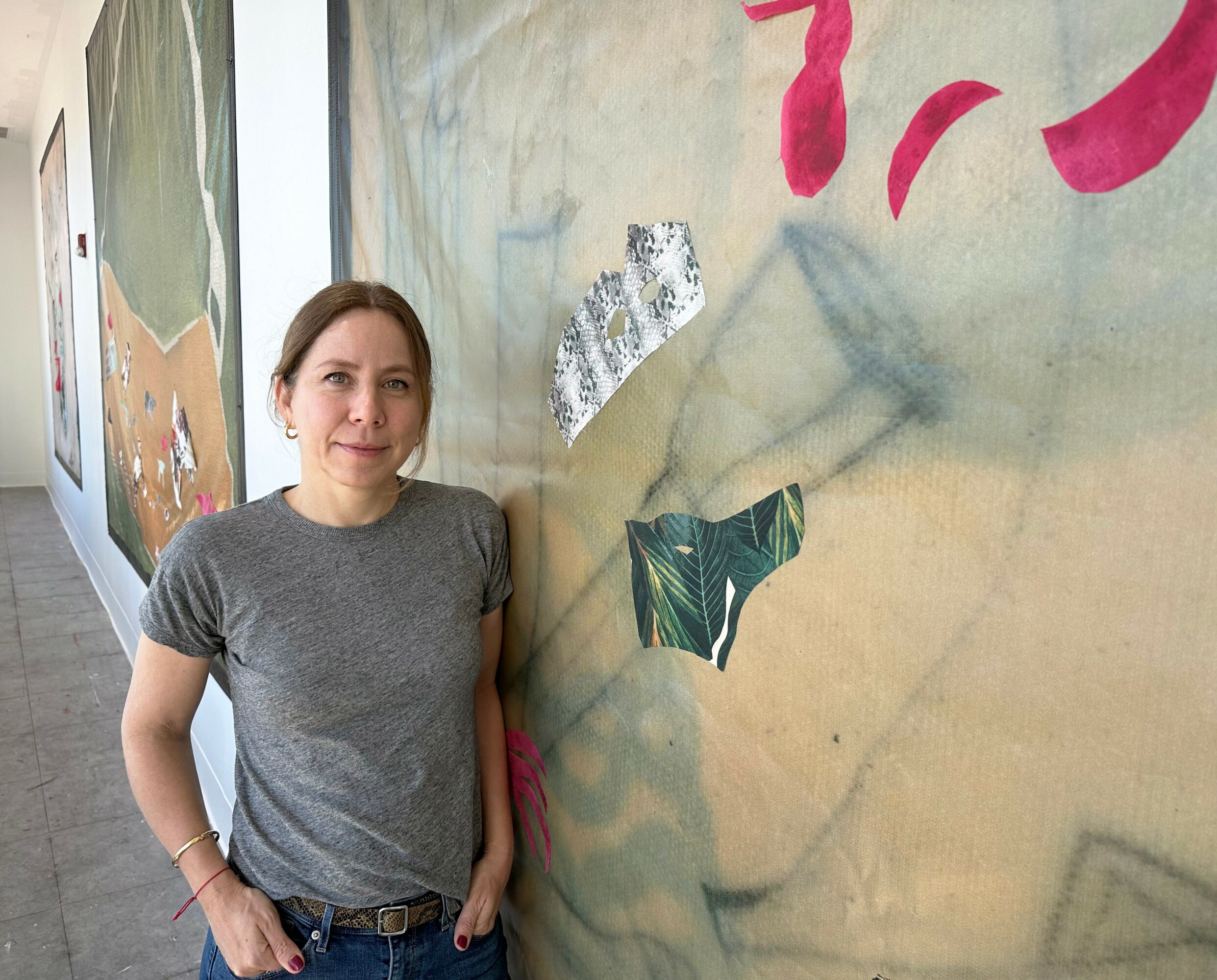

We’re looking forward to introducing you to Juana Meneses. Check out our conversation below.
Juana , a huge thanks to you for investing the time to share your wisdom with those who are seeking it. We think it’s so important for us to share stories with our neighbors, friends and community because knowledge multiples when we share with each other. Let’s jump in: What makes you lose track of time—and find yourself again?
Walking makes me lose track of time and find myself again. I love stepping outside, whether it’s in the morning or the middle of the day, leaving my computer behind to regain perspective and look beyond any current task. My dog, Choco, is always ready; he knows the sound of my laptop closing means it’s time to go. As a visual person, simply noticing the sky, the shifting light, or the flowers and plants in my neighborhood brings me back into my body. These walks often become small rituals of collecting leaves and blossoms, which later inspire my artwork. My current practice is rooted in the plants within a few blocks of my home, with each walk offering new textures and shapes to draw. By the time we loop back, I feel recalibrated, and the world feels right again. I’m reminded of the bigger picture, my own goals and aspirations, and I return with both perspective and a handful of new leaves to sketch.
Can you briefly introduce yourself and share what makes you or your brand unique?
When I moved back to Miami, I gave myself the freedom to try projects that excited me. I launched an independent artists’ book project, making books as a way to record my experiences and surroundings. Then, in 2020, I took another leap and founded Loteria Press, a stationery and gift line born out of my love for drawing and making art accessible. For a few years, I sold greeting cards in shops across the U.S. and even exhibited at major trade shows in New York. But by 2022, I realized I was spending most of my days packing orders alone, and what I truly loved was interacting with people, not just shipping and doing admin by myself. That realization set me on a new path.
Today, my focus is on creating artwork rooted in social practice and invitations for the audience to participate, respond, and even inscribe their own words directly onto the work. My projects often unfold in communal settings, where participants are encouraged to leave behind their stories, drawings, or reflections, transforming the artwork into a living record of shared experience. Alongside this, I continue to draw from the traditions of botanical illustration, observing and documenting the subtropical environment of my Miami home through daily sketches, notes on plants, climate, and seasons. These practices are part ritual, part research, intertwining to create an evolving archive that is both deeply personal and open to collective voices.
It’s less about the finished object and more about what happens between people and place when they encounter the work and the story in the way that these objects come together to tell a story that can be rearranged to reveal multiple narratives.
Amazing, so let’s take a moment to go back in time. What was your earliest memory of feeling powerful?
My earliest memory of feeling powerful is connected to drawing. At around seven years old, I remember realizing that I could look at something, put my own spin on it, and then translate it onto paper. More than feeling powerful, I felt unique, especially when other kids began asking me to draw for them: horses, houses, even their pets. That recognition made me aware that I had something special to offer. Years later, when my family moved to Miami and I didn’t speak English, drawing became my bridge. Even when language failed me, I could draw, giving me a way to communicate and feel seen.
If you could say one kind thing to your younger self, what would it be?
If I could say one kind thing to my younger self, it would be: trust that the things you love, drawing, making, observing, will always guide you to where you need to be. Even when you feel out of place, or when words fail you, your creativity will be your language, your compass, and your way of connecting with others. Hold on to it, because it will carry you farther than you can imagine, and it will connect you to so many others who feel the same way.
So a lot of these questions go deep, but if you are open to it, we’ve got a few more questions that we’d love to get your take on. What’s a cultural value you protect at all costs?
One of my core values is protecting and uplifting a variety of voices and points of view. I believe that diversity of perspective is what makes communities, conversations, and creative work vibrant and meaningful. This is at the heart of my art and social practice, where I create spaces for people to participate, respond, and inscribe their own stories. By inviting many voices into the work, I aim to build connections, spark dialogue, and protect the richness that comes from different lived experiences.
Okay, so let’s keep going with one more question that means a lot to us: What will you regret not doing?
I know I will regret it if I ever stop making art, or if I fail to use my practice to connect more deeply with the natural world. Through a perpetual journal, I will continue recording the climate and the way plants are changing every year—Miami’s coral reefs, barrier islands, the Everglades, and the flora of Bogotá when I return to Colombia. I feel a special urgency to document the plants around my parents’ home, preserving them as part of our family’s story. This act of keeping record is both remembrance and devotion, a way of holding on to the fragile beauty of place and time. I also believe my artwork can help support conservation efforts, bringing visibility, care, and attention to the environments that sustain us.
Contact Info:
- Website: https://www.juanameneses.com
- Instagram: https://www.instagram.com/loteriapress/
- Linkedin: https://www.linkedin.com/in/juana-meneses-1a5b826/
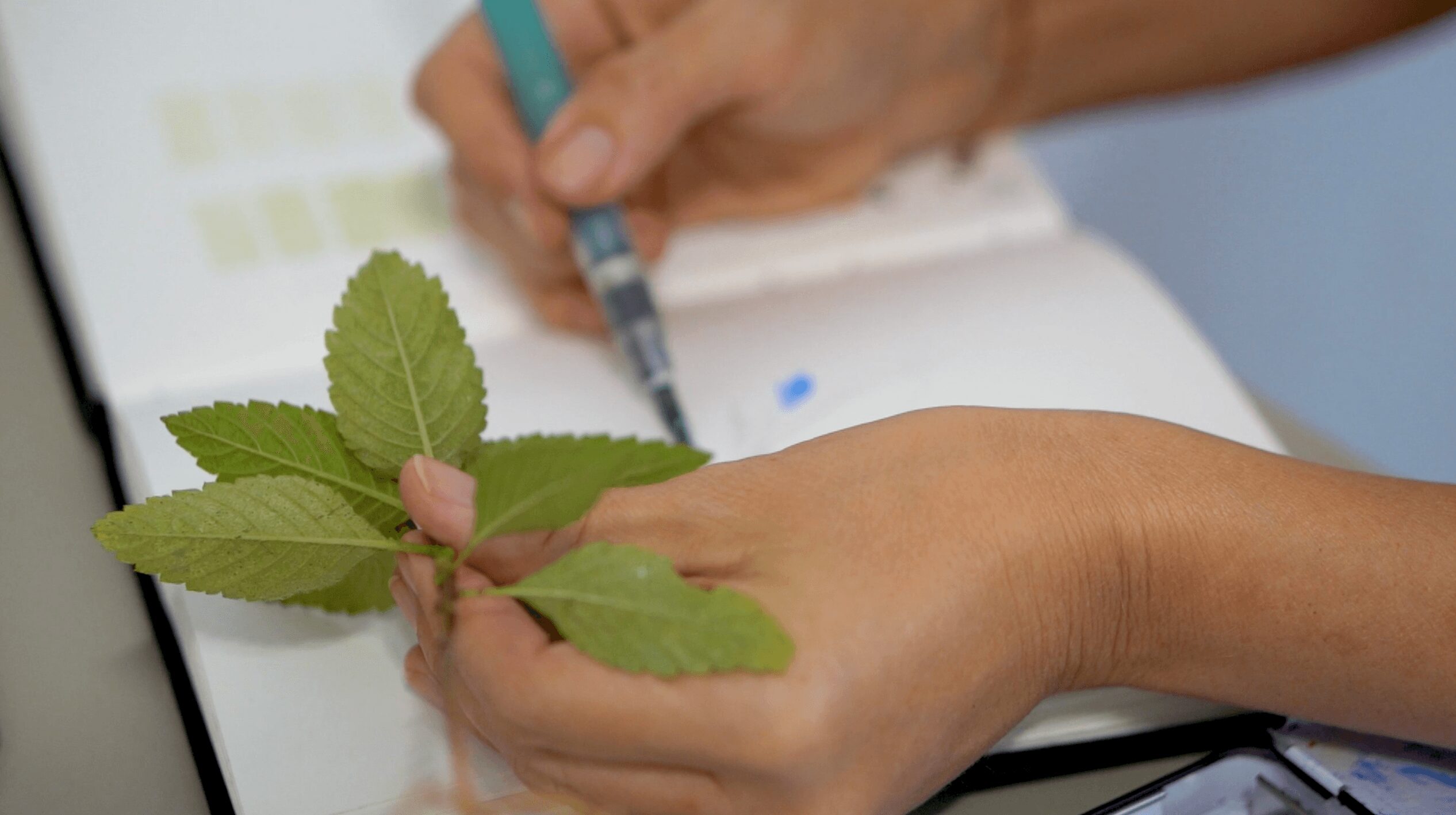
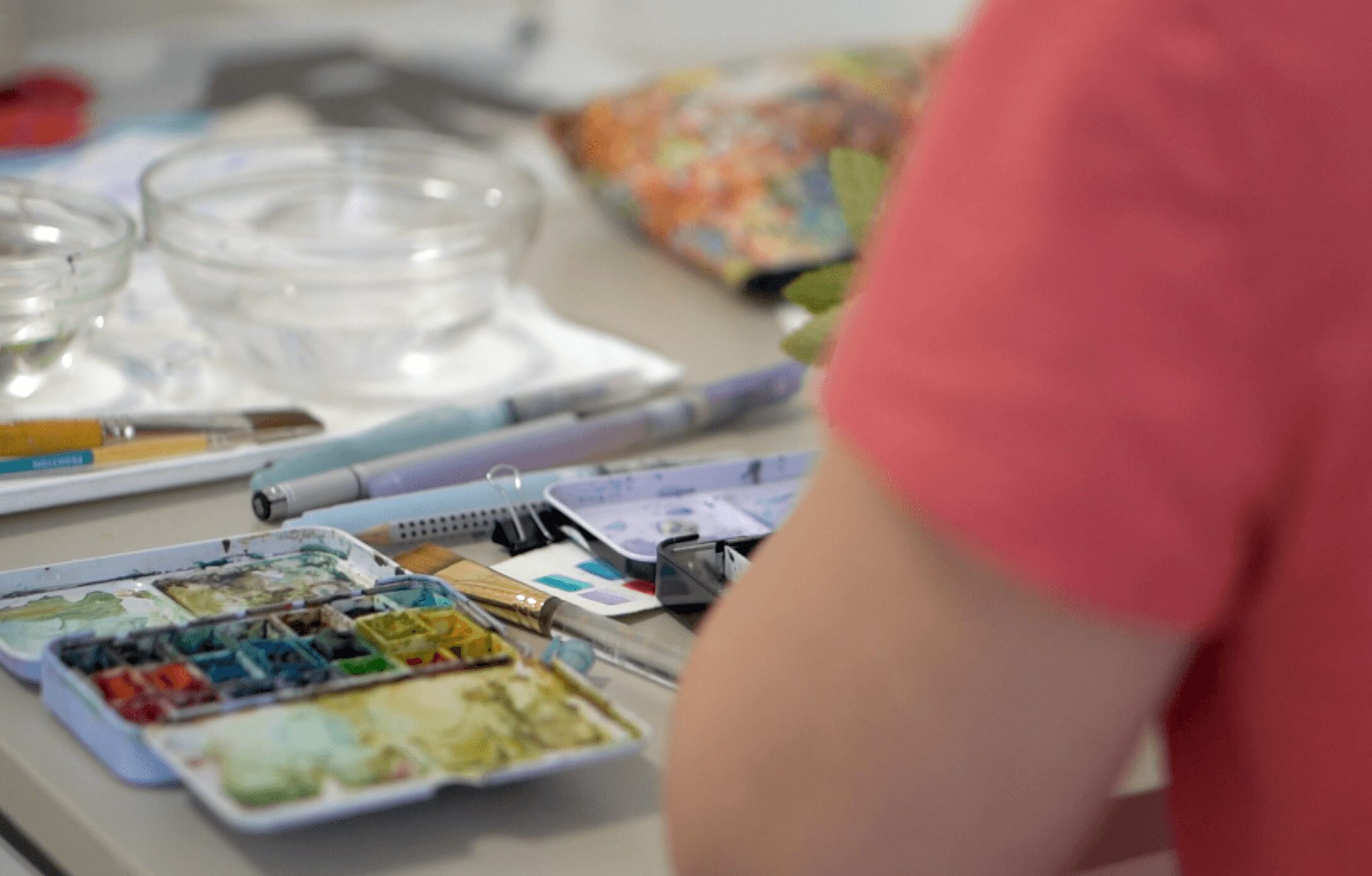
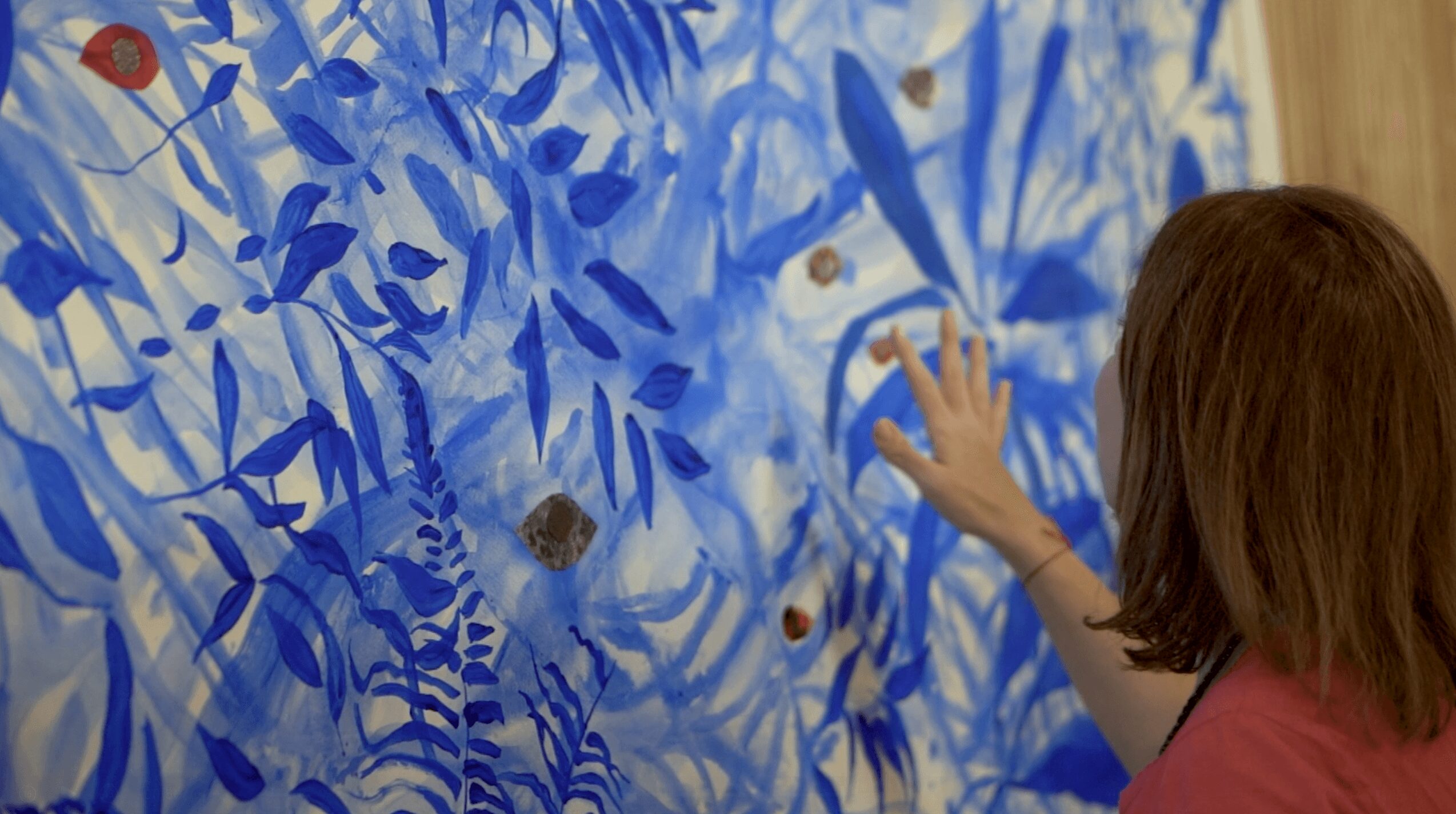
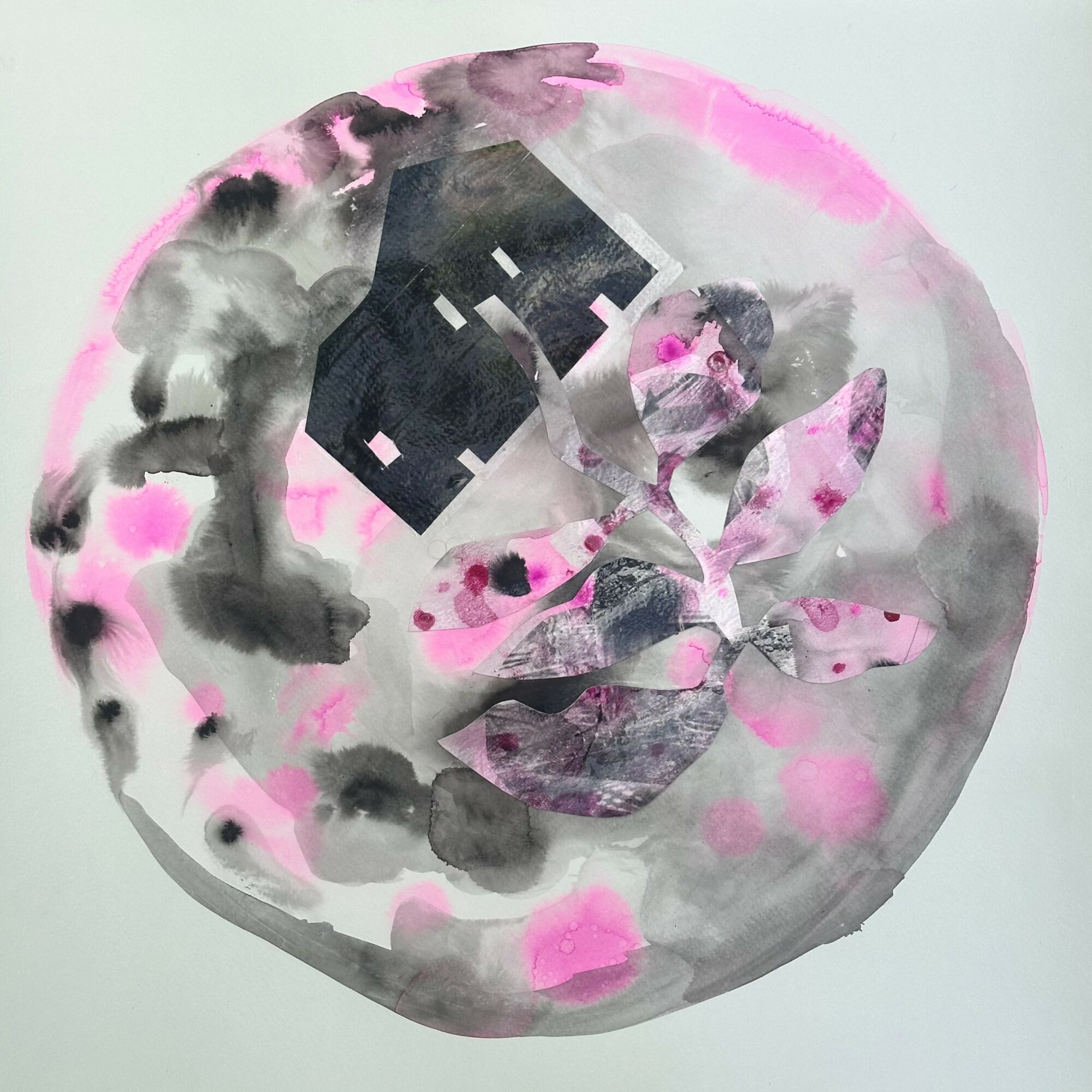
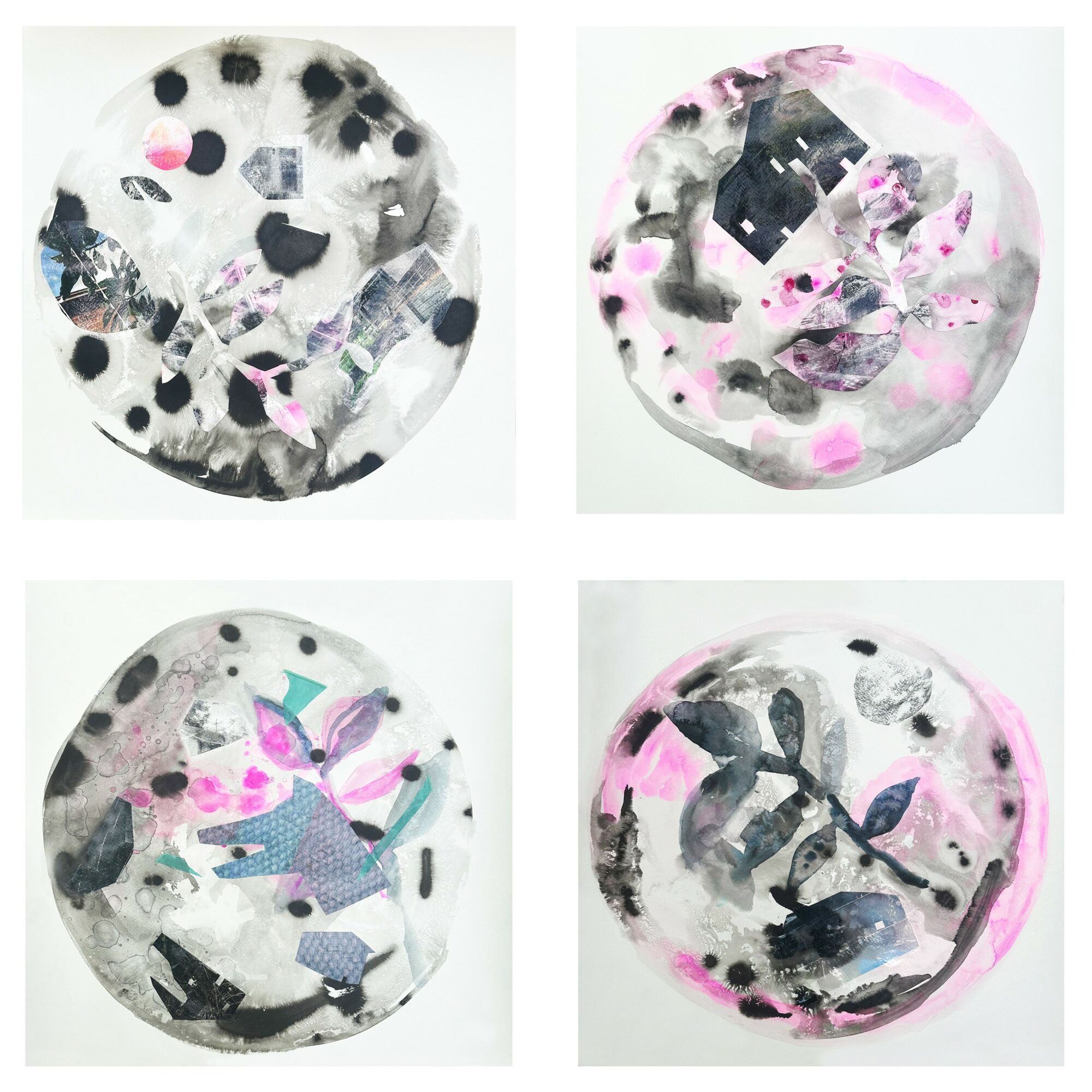
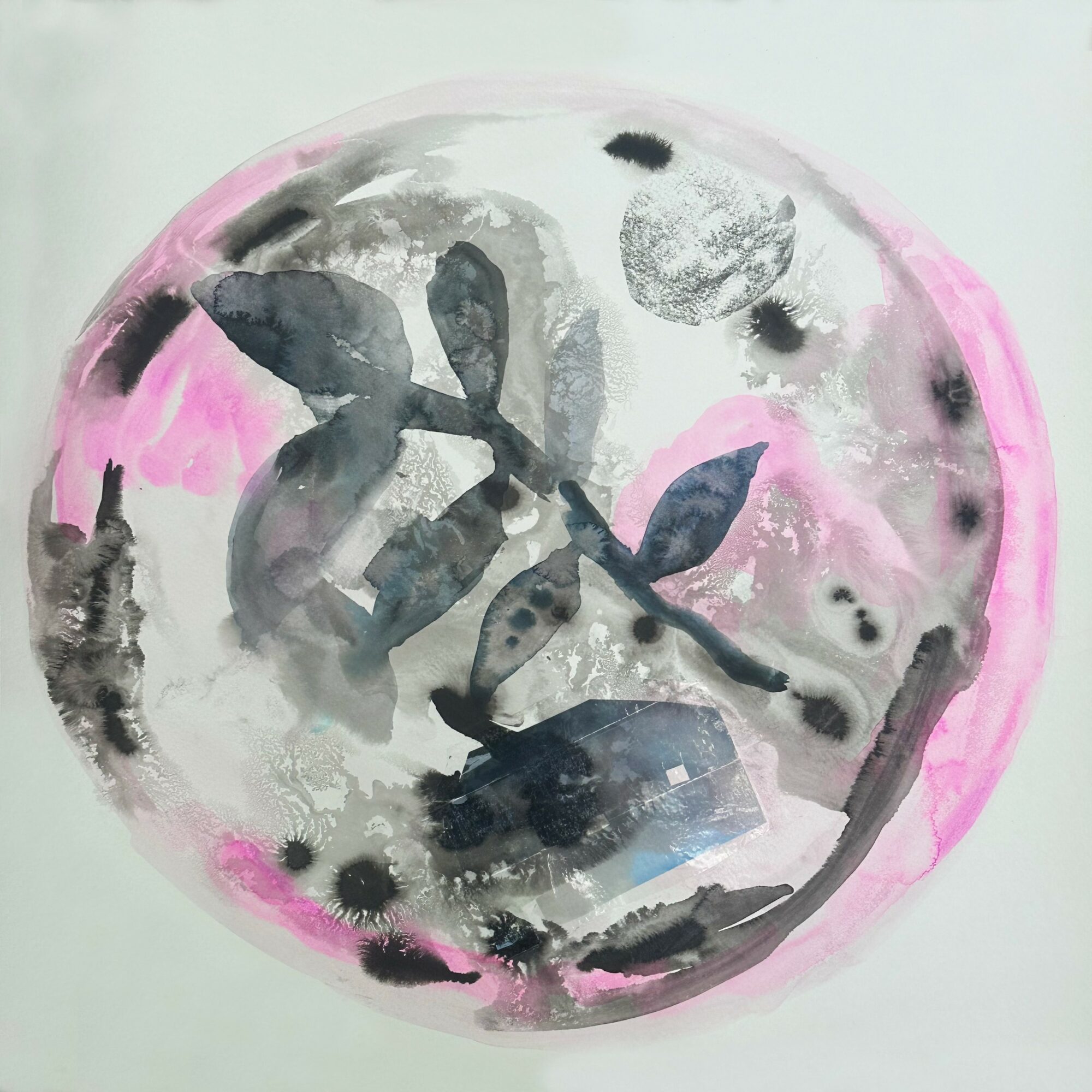
Image Credits
Jeily P. Olmo










